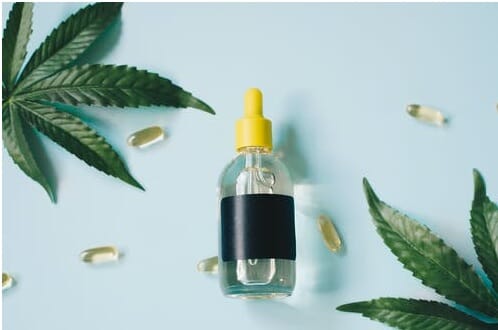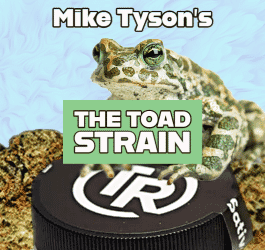A Crash Course on Delta 8 & CBD

As we learn more and more about the effects of cannabinoids on the endocannabinoid system, we become better able to isolate these specific compounds for their desired effects. For example, it’s well known that the cannabinoids constituting the class known as THC, or tetrahydrocannabinol, bind to certain cannabinoid receptors in the brain and cause the familiar euphoria of a high. Cannabidiol, also more popularly known as CBD, also binds to cannabinoid receptors in the body, though it doesn’t cause the same sensation of being high. Studies are forthcoming, but CBD is also associated with a wide range of positive effects, including the potential to reduce inflammation and to help some people cope with anxiety.
One isolated cannabinoid that has been gaining popularity recently is known as Delta 8, which you may hear referred to as Delta 8 THC or Delta 8 CBD. To understand its popularity, we need to take a step back and analyze the effects of cannabinoids on a system in the body known as the ECS, or endocannabinoid system.
Cannabinoids and the Endocannabinoid System
The system is known as the endocannabinoid system, or ECS, was only recently discovered and its function is still not fully understood. What we do know is that the ECS consists of a complex cell-signaling network within the body that interacts with cannabinoids through cannabinoid receptors.
While it can’t be said with certainty yet that the ECS specifically regulates other body systems, it is believed to have effects on other systems that affect sleep cycles, appetite, fertility, and even mood and memory.
What’s interesting about the endocannabinoid system is that it functions in your body whether or not you take THC, CBD or other cannabinoids as supplements through cannabis products. The body naturally produces cannabinoids known as endocannabinoids, such as anandamide (sometimes known as AEA) and 2-arachidonoglycerol (otherwise known as 2-AG).
These endocannabinoids bind to cannabinoid receptors in the ECS at various points throughout your body, helping to impact other body systems. For example, anandamide is believed to bind to CB-1 receptors in the central nervous system, where it helps to serve as a lipid mediator and can impact mood and help to alleviate feelings of anxiety.
CB-1 receptors, mentioned above, are dispersed primarily through the central nervous system, but the ECS also contains receptors known as CB-2 receptors, which are scattered throughout the remainder of the peripheral nervous system.
While the body produces endocannabinoids that may help regulate certain body functions, externally introduced cannabinoids, like THC and CBD, also bind to these receptors, and may be implicated in assisting with sleep, mitigating anxiety, reducing inflammation, and more.
But despite the fact that cannabinoids all affect the ECS and its function, not all cannabinoids are implicated in producing the same effects. As researchers learn more about cannabinoids, they have isolated a wide range of different compounds, such as the CBD mentioned above, in addition to CBG (cannabigerol) and different constituents of THC, such as Delta-8 THC and Delta-9 THC.
Delta 8 & CBD: Know the Difference
Delta 8 THC, a form of THC, though it is sometimes referred to as Delta 8 CBD, has become fairly popular in recent years because of the effects it produces. However, although you may hear it referred to as Delta 8 CBD, it’s important to note a distinct. First, let’s cannabidiol (CBD).

CBD is a cannabinoid that is not known to produce psychoactive effects such as those associated with the feeling of a high. However, CBD has been claimed to produce a number of positive effects nonetheless. Some believe that it can reduce inflammation and help users cope with chronic pain. It’s also been said that CBD may be able to help users fall asleep and get more restful sleep and that it also regulates enzymes that break down anandamide in the body. Consequently, it’s been claimed that cannabidiol can help users cope with feelings of stress or anxiety.
There are hundreds of known cannabinoids, and Delta 8 is just one of them. However, its effects are believed to be more similar to THC than to CBD. However, because Delta 8 is only present in trace amounts in cannabis products, rather than extracting it from the plants themselves, sometimes producers synthesize Delta 8 from CBD. Because the compounds are similar, by rearranging the molecular structure of CBD, Delta 8 can be produced more efficiently than through extraction from cannabis plants.
Potential Uses of Delta 8
The compound known as Delta-9 THC is the one that is responsible for the high that most people associate with cannabis products. However, although it is not as potent, Delta 8 is a psychoactive compound and does produce a feeling of euphoria in some users. So, it does create a sort of a high, although experiences are bound to be subjective.
It should be noted that most users observe that the “high” produced by Delta 8 CBD or THC products is not that intense. Some call it more relaxing and uplifting than euphoric. For this reason, some users take Delta 8 and similar derived products because they believe it can help them focus and potentially even improve their mental clarity. Some also believe that Delta 8 products can help them relax.
It’s also been said that Delta 8 can help serve as an antiemetic and may even be able to stimulate the appetite. It’s also said to serve as an analgesic, so like CBD products like CBD oil and tincture, it may serve to help mitigate pain and inflammation.
How to Take Delta 8

Like other CBD and THC products, there is a wide range of methods for consumption of Delta 8. Here at Upper Limits Midwest, we sell Delta 8 gummies, D8 syrup, D8 vape cartridges, and even D8 candy. We also sell Delta 8 tinctures and loose e-liquid products online, so you can take D8 with whatever method you’re most comfortable with.
If you have any questions about our Delta 8 CBD or THC products, please get in touch with us at info@upperlimitsinc.com or at 217-679-4315.











Comments